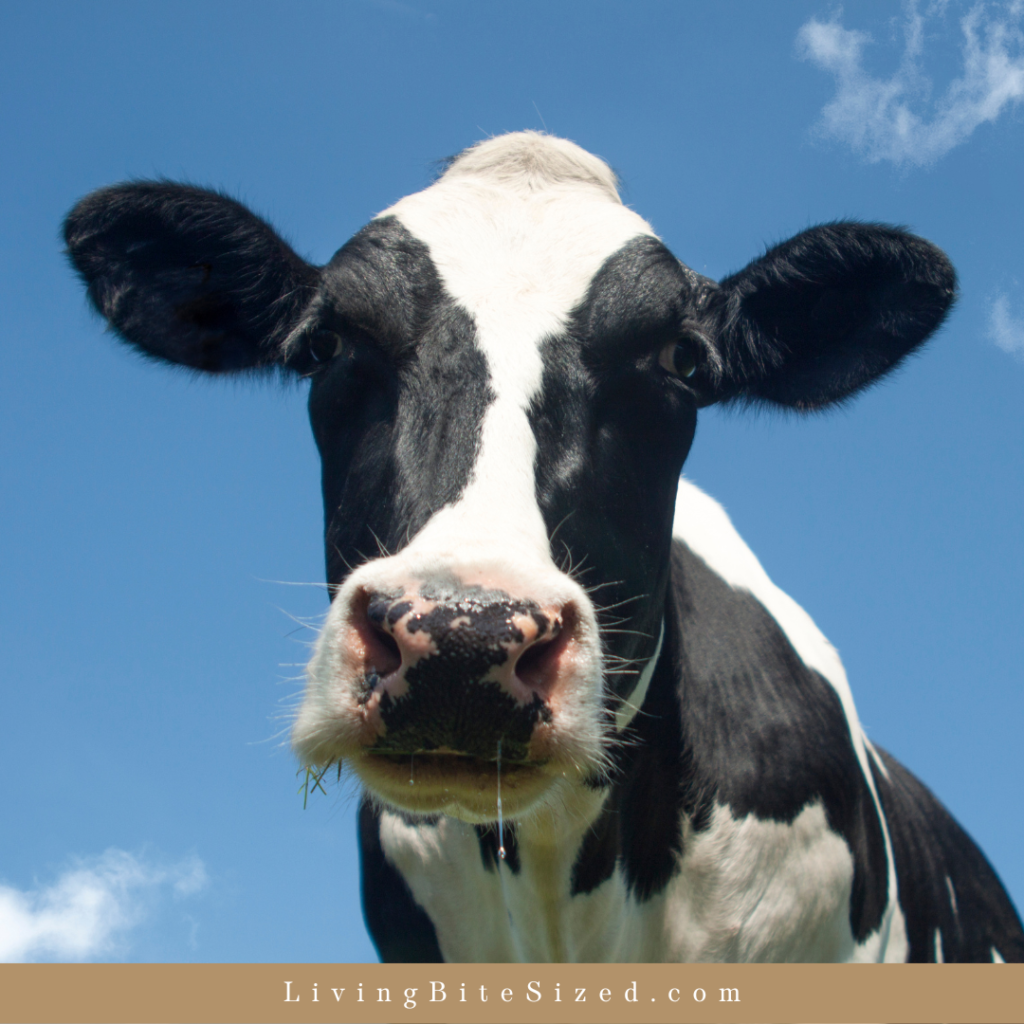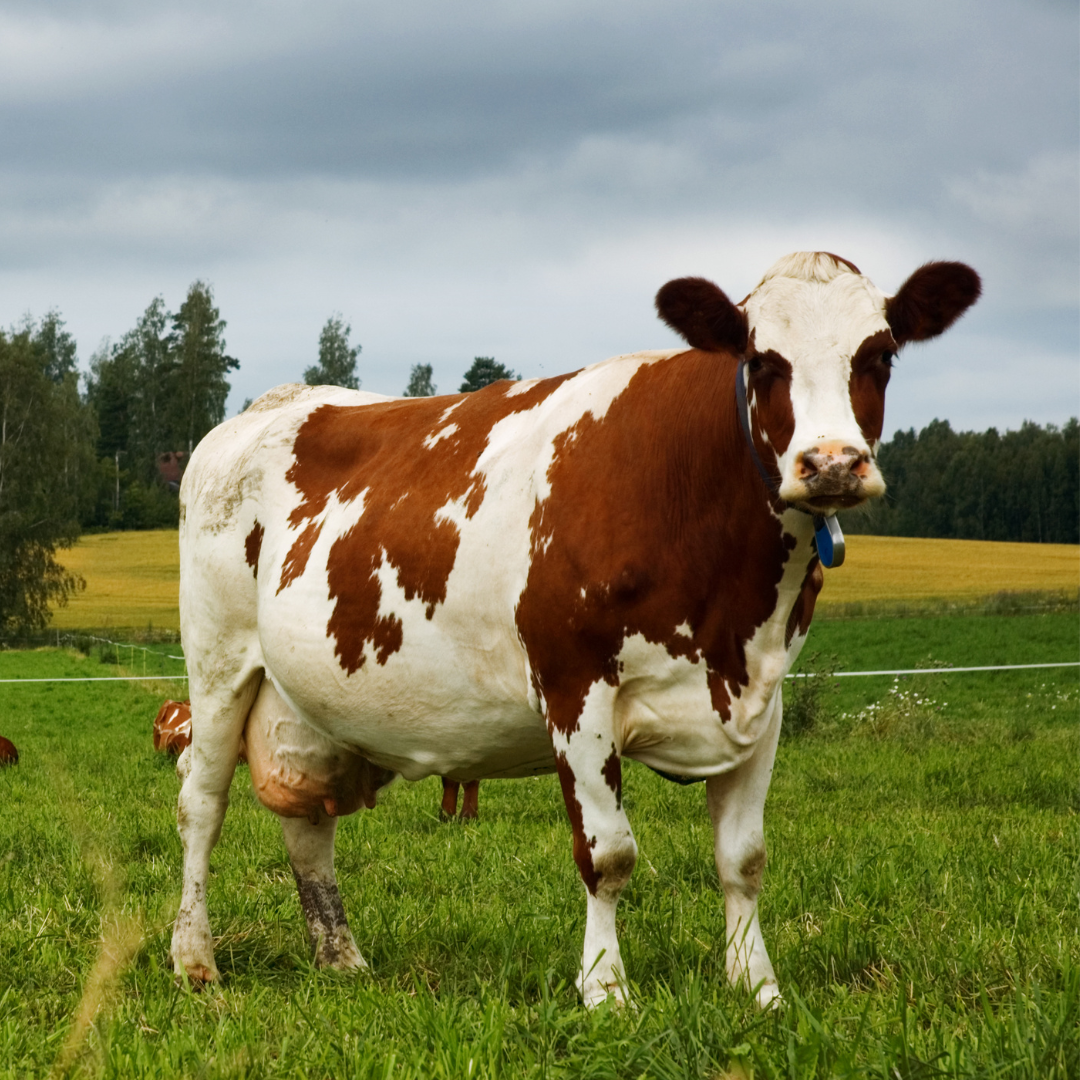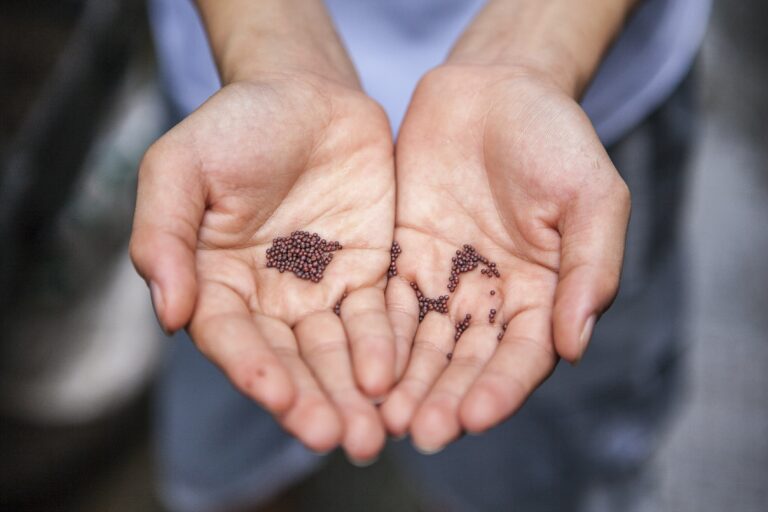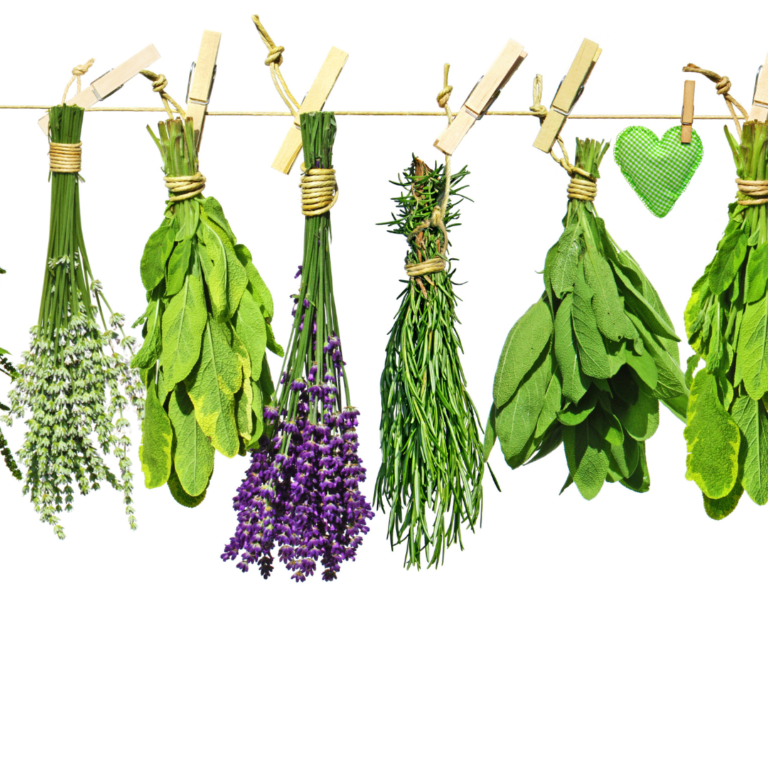Family Milk Cows: Choosing the Best Breed for Your Homestead
This post may contain affiliate links. Read the full disclosure here.
Owning a family milk cow is an exciting step toward self-sufficiency on the homestead. With your own milk source right out in your backyard, you can have a plentiful supply of not only milk, but the ability to produce other dairy products as well – such as butter, yogurt, cheese, ice cream, and more.

Types of dairy cows to consider for your family milk cow
Dairy cows are not all created equal, though! Though there are a number of options when it comes to dairy breeds, it’s important to do some research to find the best fit for your family. The main breeds of cows for milk production include:
- Holstein
- Jersey
- Brown Swiss
- Guernsey
- Dexter
- Milking Shorthorn
- Ayrshire
Before starting the search for your family milk cow, you’ll want to consider factors such as size, temperament, maintenance level, and production level. If you’re interested in potentially breeding your cow, you’ll also want to find a cow that breeds easily and tends to her calves well.
1. Holstein
Arguably the most popular dairy cow out there, black and white Holsteins are well-recognized for producing large quantities of milk – sometimes up to 10 gallons per day. They’re affordable, easy to find, and easy to milk.
These high producers, however, are usually much better suited to large-scale operations than to small, family farms. This is partially due to their prolific milk production and also due to the extra attention needed to avoid health problems. Holsteins need well-tended environments with quality forage, they don’t fare well in the heat, and they’re overall much higher maintenance than other breeds when it comes to keeping them healthy.
2. Jersey
Jerseys are well-known for being an excellent choice for a family milk cow. They produce deliciously thick and creamy milk that’s wonderful for both drinking and cheese making. Many people also enjoy their smaller size. For this reason, they don’t require quite as much grazing space as some other breeds.
A potential downside of Jerseys is their active, playful personality that can sometimes make them more difficult to handle. In addition, they’re not hardy enough to handle extremely cold temperatures.
3. Brown Swiss
A high producing option, Brown Swiss are one of the oldest breeds of cow and originate from Switzerland. They’re a docile, kind breed that’s easy to handle. They also have the potential to produce more than 5 gallons of milk per day.
One downside to Brown Swiss on the family homestead is that because of their larger size, they do require more grazing space and often need supplemental grain as well.
4. Guernsey
Guernseys are the most well known for producing a golden colored milk, resulting from high levels of beta carotene. They’re a docile breed that is easy to milk by hand. Most Guernseys produce A2A2 milk, which many people find to be easier to digest.
There aren’t a lot of cons when it comes to Guernsey cows. The biggest issue with Guernseys is that they can be difficult to find.
5. Dexter
Dexters are a small breed of cow that don’t require as much feed or grazing space as other options. Usually, they measure only about 40 inches at the shoulder.
Averaging 1-2 gallons per day, they’re not the highest producers. Some family farms however, consider this a benefit if they don’t need as much milk. Still, if you’re looking for an animal that will provide you with plenty of dairy to drink and to make your own milk products, a Dexter may not be the best option for your homestead.
Like Guernseys, Dexters can also be difficult to find. If you’re set on a Dexter, be prepared to potentially search for a while before finding a family cow for your homestead!
6. Milking Shorthorn
Milking Shorthorns are a docile breed that have been around for hundreds of years (since the 1700s). They tend to be hardy, dual-purpose cows that also have the benefit of being easy breeders. They’re medium-sized animals that also tend to be medium-level producers, giving approximately 4 gallons per day.
While Shorthorns are a mostly reliable breed, they are sometimes prone to genetic defects, such as tibial hemimelia, which causes calves to be born with severe deformities in some cases. Fortunately, genetic tests are available and are helpful to check before breeding.
7. Ayrshire
Ayrshires are a larger breed that require more feed and grazing space than other breeds in order to keep up a healthy milk supply. They’re a hardy breed, but can sometimes be stubborn and a bit tricky to handle if you’re not familiar with being around cows. They can also be pushy with other cows in the herd.
Adding a family milk cow to your homestead
Besides enjoying the incredible benefits of creamy, raw milk, dairy cows are a beautiful, enjoyable addition to the homestead. They’re helpful for maintaining pasture space and are nearly always well loved by the whole family. Keeping a milk cow is also an indispensable way to teach your kids where dairy products come from and how to care for a production animal day in and day out.
Are you planning to get your first family milk cow? Let us know what breed you’re leaning toward in the comments!
See our Airstream Remodel Reveal here!






